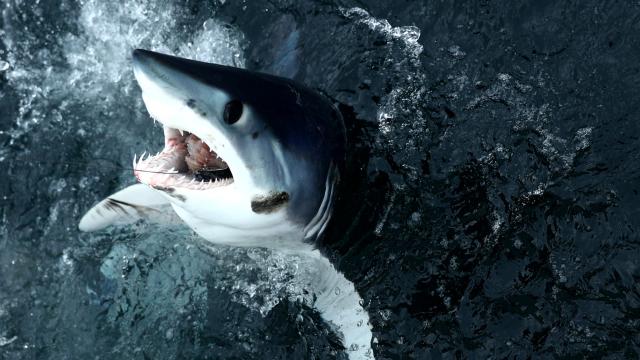Disbelief and disappointment are some of the more PG-rated reactions coming from the ocean conservation community on Tuesday in response to a decision not to protect mako sharks. A closely-watched measure to protect IUCN Red List Endangered fish failed to pass at an international meeting that ended Monday due to objections from the European Union (EU) and the U.S., two political bodies not traditionally thought of as ocean conservation “bad guys.”
This surprising failure occurred at the annual meeting of the International Commission for the Conservation of Atlantic Tunas (ICCAT), a treaty-established international group of fishing nations that come together to decide on fisheries management or conservation issues that affect them all, especially with respect to fish that live on the high seas or regularly migrate between national borders. At this year’s ICCAT, one of the most-watched conservation proposals wasn’t about tuna at all, but about mako sharks, which are commonly caught as bycatch in tuna fisheries. These animals just received an Appendix II listing at CITES earlier this year that regulates international trade of makos, and all eyes were on ICCAT to see if fishing nations would give these animals even more protection that they so desperately need.
https://earther.gizmodo.com/ghost-fishing-gear-is-a-bigger-threat-to-sharks-than-1836204933
The specific proposal that ocean conservationists were closely following called for a total prohibition on landing mako sharks. Any sharks accidentally caught by tuna fishermen would have to be released (or discarded if dead, because saying “you can’t sell them unless they’re dead when they reach your boat” creates some perverse incentives). ICCAT’s scientific advisory committee recommended the total prohibition, and noted that it might take up to 50 years for overfished mako shark populations to recover even if all fishing stops now. The measure, which was led by Senegal and Canada, was ultimately defeated because the EU and the U.S. (the top- and third-ranking fishing nations for mako sharks by landings) didn’t want a total prohibition on landings, preferring to still allow some fishing.
Conservationists who were hoping to build on momentum from CITES were surprised and angry at the outcome, especially given the reason the measure didn’t pass.
“It’s pathetic,” Sonja Fordham, President of Shark Advocates International, told Earther. “ICCAT had urgent advice to protect makos, discussed it for eight days straight, and still failed to act! It’s been particularly distressing to watch the U.S. and the EU act as primary obstacles to consensus, given that these parties have national prohibitions on other shark species and have long promoted science-based shark conservation.”
Though the EU sometimes slides under the radar in environmental discussions when it comes to the ocean, many European nations’ fishing regulations are extremely problematic. For example, if you asked 100 vaguely environmentally aware people who the worst offenders in ocean conservation issues are, I bet most would say China or Japan, and approximately zero would say Spain but the latter is also way up there.
“The EU’s lead role in the depletion of Atlantic mako sharks is nothing short of scandalous,” Ali Hood, the Director of Conservation for the Shark Trust, a UK shark conservation non-profit, told Earther. “Spain and Portugal take the lion’s share of this valuable, vulnerable resource, with no limits on catch. This short term economic interest has skewed the stance of the EU as a whole, resulting in an unworkable and wildly unpopular position that has scuppered the best chance to turn the tide for this endangered species.”
EU fishing fleets engage in plenty of bad behaviour, but the nation that proposed the most troubling alternative to the scientist-recommended total ban on keeping mako sharks caught as bycatch was the U.S.
“Of three ICCAT proposals to limit the catch of mako sharks, the U.S. proposal was the only one that would allow killing of makos that make it to the boat alive,” according to Alejandra Goyenechea, Senior International Counsel at Defenders of Wildlife. “This is unacceptable, it’s simply too late for half measures. There are no more spare makos.”
In addition to the bad news for makos, an annual proposal to strengthen a ban on shark finning was defeated yet again due to opposition from Japan and China, two nations which are stereotypical ocean conservation “bad guys.” That said, those nations both notably supported the proposed mako shark prohibition. In a rare bright spot, a proposal to improve the management of blue sharks was accepted, as was a proposal to more formally include shark conservation in ICCAT’s mandate. But those areas of agreement lost their lustre due to the continued struggles of mako sharks.
“It’s a shame that the dramatic failure of mako shark protections has cast a shadow over some truly significant achievements for sharks,” Fordham said. “ICCAT finally adopted hard catch limits for blue sharks in the North and South Atlantic, a first for the world. And after many years of negotiation, ICCAT also finally agreed to revised text that, once ratified, will strengthen its conservation mandate.”
David Shiffman is an interdisciplinary marine conservation biologist and science writer.
